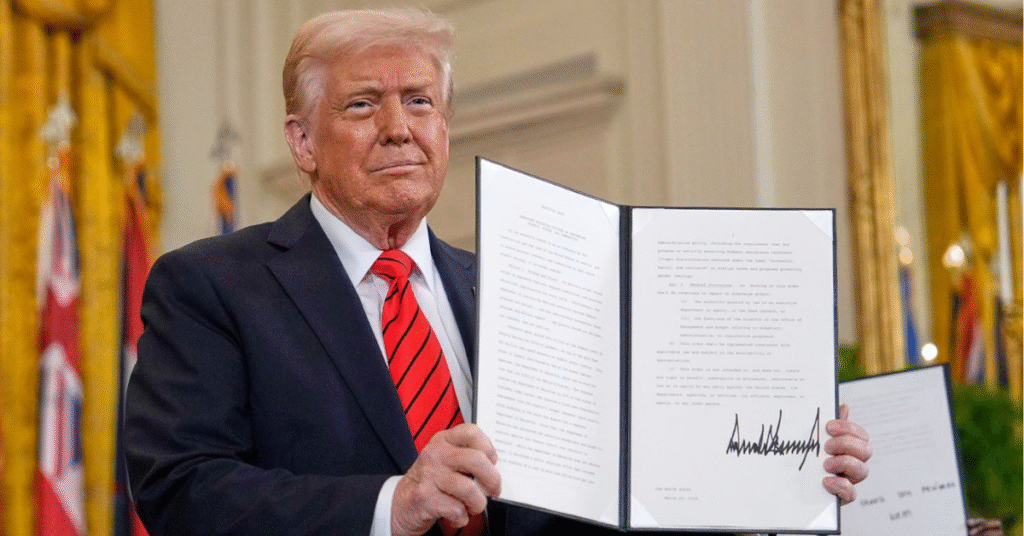H-1B Visa Overhaul: Trump’s $100,000 Fee Targets Skilled Foreign Workers
In a significant shift in U.S. immigration policy, President Donald Trump has signed a proclamation imposing a $100,000 fee on new H-1B visa applications. This move aims to restrict the entry of foreign workers into the United States, particularly in the technology sector, and is part of the administration’s broader efforts to overhaul the H-1B visa program.
Understanding the H-1B Visa
The H-1B visa program, established in 1990, allows U.S. employers to temporarily employ foreign workers in specialty occupations that require theoretical or technical expertise. These positions typically include roles in IT, engineering, mathematics, medicine, and science. The visa is valid for three years and can be extended, with many employers eventually sponsoring workers for permanent residency.
New Fee and Its Implications
The $100,000 fee applies only to new H-1B visa applications and is not retroactive for existing visa holders or those seeking renewals. The fee is a one-time charge per petition and is intended to deter companies from hiring foreign workers over American citizens. Commerce Secretary Howard Lutnick described the move as a crackdown on the “most abused visa,” aiming to prevent companies from training foreign workers instead of hiring recent U.S. graduates.
Impact on the Technology Sector
The new fee is expected to significantly affect major technology companies that rely heavily on the H-1B program to fill specialized roles. Firms such as Amazon, Microsoft, Meta, and Indian IT giants like Infosys and Tata Consultancy Services (TCS) are among those most impacted. These companies may face increased costs and challenges in staffing positions that require highly skilled professionals.
Legal Challenges and Future Outlook
The implementation of the $100,000 fee is set to take effect on September 21, 2025. However, it is anticipated that the policy will face legal challenges from industry groups and affected companies. The future of the H-1B visa program remains uncertain, with potential reforms and adjustments likely as the legal and political landscape evolves.
Conclusion
President Trump’s decision to impose a $100,000 fee on new H-1B visa applications marks a significant change in U.S. immigration policy, particularly affecting the technology sector’s access to skilled foreign labor. While the move aims to prioritize American workers, it also raises questions about the future of the H-1B program and its impact on the global talent pool.
Keep building. Keep learning. Keep growing with StartupByDoc.


